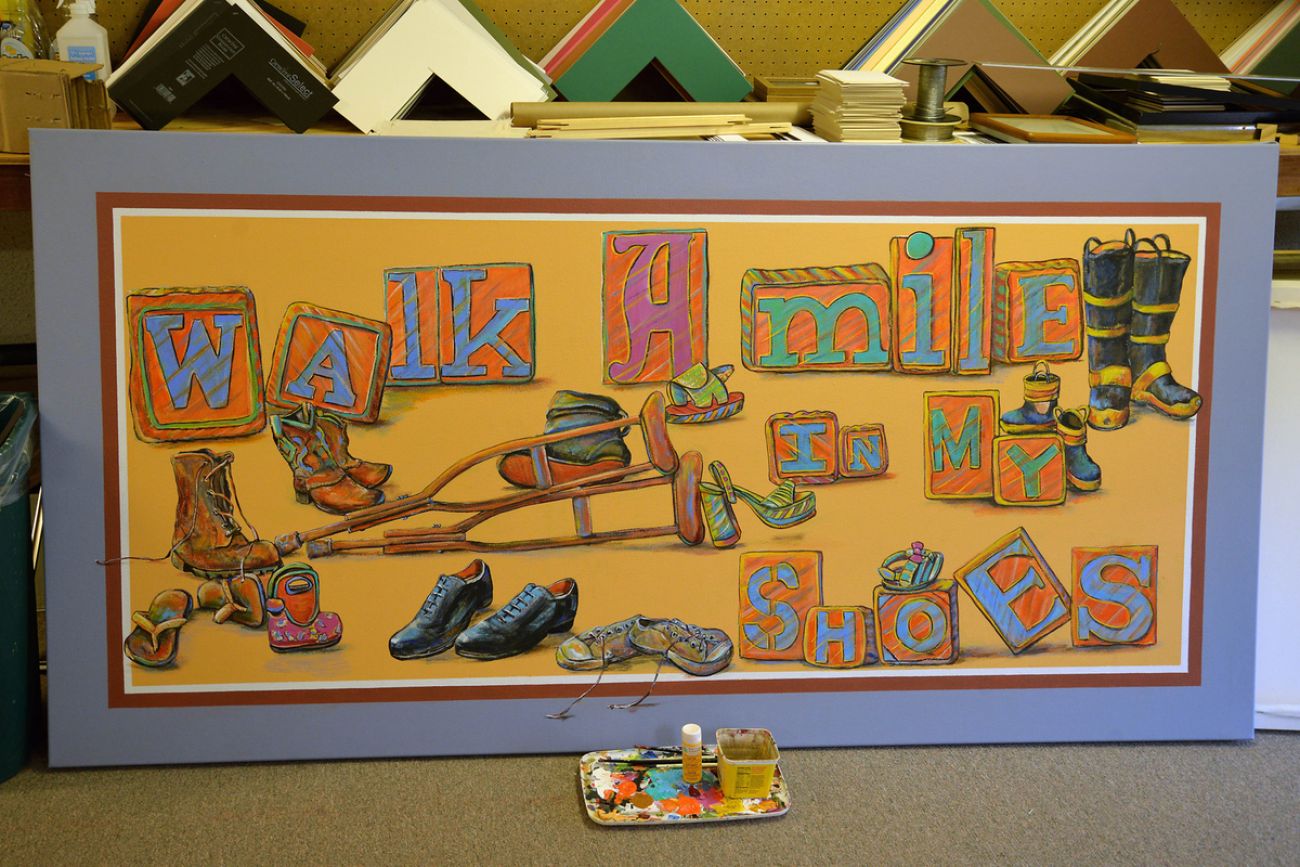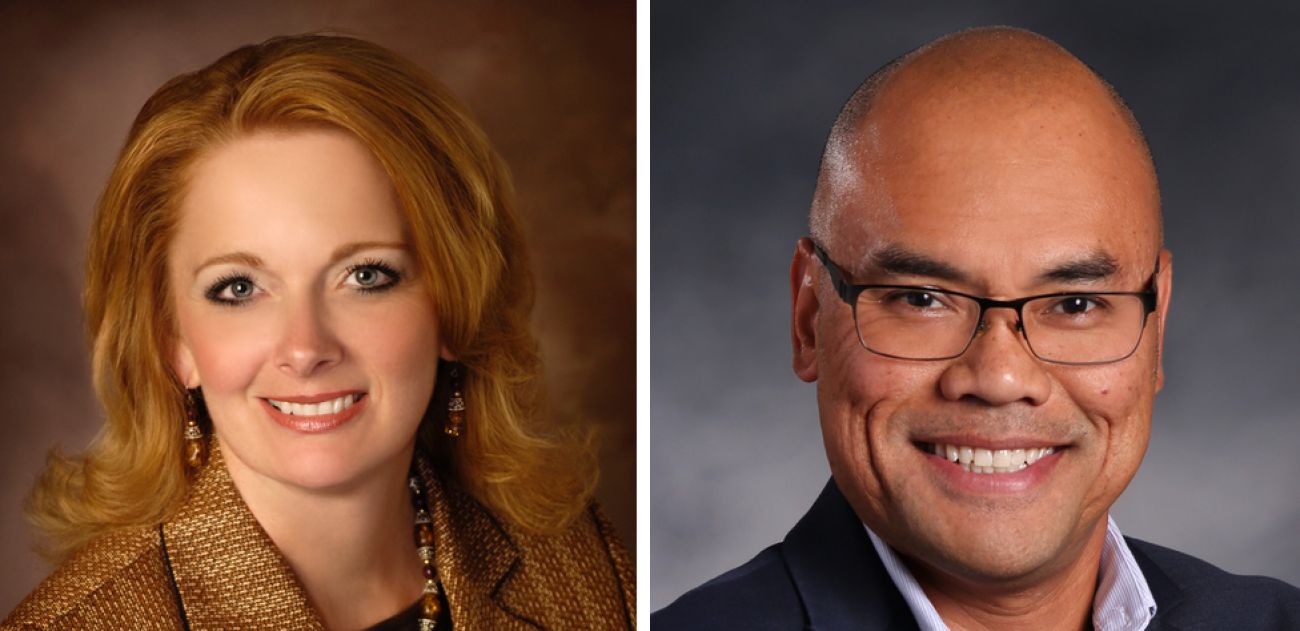A community ArtPrize project aims to make kindness more common


A year ago, Newaygo County came together for an unusual art project that, in its conception and imagination, invites our better angels to emerge.
Students, educators, local businesses, nonprofits, ordinary citizens and an artist whose work graces walls at home and abroad, in presidential libraries and in public spaces, put their imagination to work on a multimedia exhibit that inspires and illuminates, even as it confronts one of our great challenges: empathy and the need for more of it.
Our project, “Kindness, Newaygo County: Walk a mile in my shoes,” has been accepted by ArtPrize Nine and is on display at the City Water Building in Grand Rapids through Oct. 8.
“Walk a mile in my shoes” is an invitation to imagine journeys through life in braces, bound feet, ballerina pumps and battered boots, which are some of the footwear that artist Jane Stroschin has painted on six massive panels. It is an invitation to see the faces and hear the voices of children talk about kindness, about being bullied, about standing up to bullies, in a mini-documentary we produced as part of our project. It is an invitation to write down personal definitions of kindness on pieces of paper, “footnotes” to be tucked into donated shoes artfully painted and re-imagined by dozens of students throughout Newaygo County.
Our project’s conception began one summer morning last year, when the two of us sat down for coffee to talk about the health challenges in our rural West Michigan community and what we could do about them.
Diabetes, smoking and obesity are some of the well-documented health hurdles in Newaygo County.
Yet we – and much of the nation – still struggle to look another common health challenge in the eye. In large part because its symptoms and its worst ravages can’t be seen or touched, often hiding in the space between our ears, we struggle to adequately wrap our hands around mental illness and health.
We talked about a student who lived alone in an abandoned shack in the middle of an empty field in Newaygo County.
Outwardly and perhaps internally, with no family around and few friends, he was an island, cut off from the humanity around him. His teachers knew he was often excluded and bullied. He likely experienced many traumas that psychologists today increasingly link to dysfunction and types of mental illness.
We imagined what that student experienced each time he left school and returned to that shack in the middle of nowhere, living in conditions no human, let alone child, should have to endure.
In the winter of 2016, that student took his life.
In a way, we wanted to remember him and others like him, all across Michigan. Newaygo County is a generous, big-hearted community. Yet we know all of us can always do more, be kinder to more people, more often.
We dreamed about a project that could mobilize our community, while raising awareness about empathy beyond our county lines. Ultimately, we dreamed that our project could empower people to act.
Let’s make it a real moonshot, we audaciously said. Let’s have the entire community work on a project that would have a big audience, like ArtPrize.
We did not know it at the time, but 12 months after that morning coffee, our community has made a commitment to empathy that requires all of us to make the imaginative leap into someone else’s shoes. Seeing others as full human beings may be more critical today than ever.
The true challenge our children face isn’t the bureaucracy of budgets and standardized test scores, but what goes on in their actual lives. When one in three children in rural Michigan lives in poverty and when two-thirds of 9th graders in Newaygo County reported seeing students physically assaulted, we must ask ourselves whether our children come to school with breakfast so they’re ready to learn, whether they get the care to be healthy, whether their lives are free from violence.
One art project isn’t going to infuse our lives with empathy. Our modest hope is that it could at least help us take a step in the right direction to make kindness more common.
See what new members are saying about why they donated to Bridge Michigan:
- “In order for this information to be accurate and unbiased it must be underwritten by its readers, not by special interests.” - Larry S.
- “Not many other media sources report on the topics Bridge does.” - Susan B.
- “Your journalism is outstanding and rare these days.” - Mark S.
If you want to ensure the future of nonpartisan, nonprofit Michigan journalism, please become a member today. You, too, will be asked why you donated and maybe we'll feature your quote next time!

